The Manitoba Reform Party was a right-wing political party in Manitoba, Canada in the early 1990s. It was known as the Manitoba Confederation of Regions Party (CoR) in the provincial elections of 1986, 1988 and 1990.
The Manitoba Reform Party was a right-wing political party in Manitoba, Canada in the early 1990s. It was known as the Manitoba Confederation of Regions Party (CoR) in the provincial elections of 1986, 1988 and 1990.
The Manitoba Confederation of Regions Party was the provincial branch of the Confederation of Regions Party of Canada, a right-wing organization which sought greater autonomy for Western Canada. Unlike the Western Canada Concept and the Western Independence Party, the CoR did not advocate full independence for the western provinces. The national party leader was Elmer Knutson; its original provincial leader was Douglas Edmondson.
The Manitoba CoR was founded in 1984, as a result of public controversy over New Democratic Party Premier Howard Pawley's attempts to entrench francophone services in the province. The CoR opposed any expansion of French language rights.
The national CoR Party polled surprisingly well in the 1984 federal election in Manitoba, placing second to the Progressive Conservatives in three rural anglophone ridings. The party, as such, hoped to elect candidates to the Legislative Assembly of Manitoba in the general election of 1986.
The party ran 15 candidates in 1986, and managed to place second in four rural ridings (Arthur, Gladstone, Pembina and Rhineland). None of the CoR's candidates came close to victory; Dennis Heeney, who had replaced Edmondson as leader, placed third in Minnedosa.
The CoR ran 14 candidates in 1988. Despite a high-profile endorsement of the party from former Premier Douglas Campbell, no candidate placed higher than a distant third. Dennis Heeney appears to have stepped down as party leader following the election.
In 1990, only five candidates ran under the CoR banner. Irene Armishaw was the party's president. Armishaw received the largest number of votes of any of the party's candidates—486 votes in the rural riding of Lakeside.
In April 1991, the Manitoba CoR changed its name to the Manitoba Reform Party after a mail-in referendum among party members conducted in March and April, in which 67% of the respondents were said to have favoured the change. (The Manitoba CoR had 65-70 members by this time.)
The new name brought about a lawsuit from the Reform Party of Canada, which had no formal connection to the Manitoba group. National CoR leader Elmer Knutson was also opposed to the change. Manitoba Reformers argued that as no other group had applied to use the name on a provincial level. The Court of Appeals in Manitoba determined in 1991 that party's use of the word "Reform" at the provincial level was legal.
In September 1992, the Manitoba Reform Party contested two provincial by-elections. Ken Carver received 97 votes in Crescentwood, and anti-bilingualism activist Fred Debrecen received 388 votes in Portage la Prairie.
The party was registered with Elections Manitoba for the 1995 provincial election, but did not run any candidates. Its subsequent history is unclear.
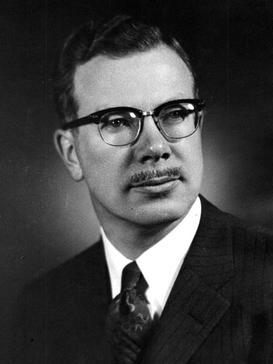
Dufferin "Duff" Roblin was a Canadian businessman and politician. He served as the 14th premier of Manitoba from 1958 to 1967. Roblin was appointed to the Senate of Canada on the advice of Prime Minister Pierre Trudeau. In the government of Brian Mulroney, he served as government leader in the Senate. He was the grandson of Sir Rodmond Roblin, who also served as Manitoba Premier. His ancestor John Roblin served in the Upper Canada assembly.

The 1997 Canadian federal election was held on June 2, 1997, to elect members to the House of Commons of the 36th Parliament of Canada. Prime Minister Jean Chrétien's Liberal Party won a second majority government. The Reform Party replaced the Bloc Québécois as the Official Opposition.

The Social Credit Party of Canada, colloquially known as the Socreds, was a populist political party in Canada that promoted social credit theories of monetary reform. It was the federal wing of the Canadian social credit movement.
The Confederation of Regions Party (CoR) was a right-wing federal political party in Canada founded in 1984 by Elmer Knutson. It was founded as a successor to the Western Canada Federation (West-Fed), a non-partisan organization, to fight the Liberal Party of Canada. The CoR aimed to fill the void on the right of the political spectrum left by the decline of the Social Credit Party of Canada and the growing unpopularity among westerners of the Progressive Conservative Party of Canada under the leadership of Brian Mulroney.
The Western Canada Concept was a Western Canadian federal political party founded in 1980 to promote the separation of the provinces of Manitoba, Saskatchewan, Alberta and British Columbia, and the Yukon and Northwest Territories from Canada in order to create a new nation.
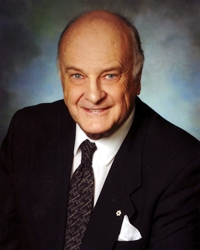
Howard Russell Pawley was a Canadian politician and professor who was the 18th premier of Manitoba from 1981 to 1988. Prior to his premiership, Pawley served in various ministerial positions after his tenure in the Legislative Assembly of Manitoba.
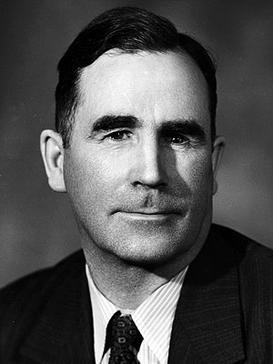
Douglas Lloyd Campbell was a Canadian politician in Manitoba. He served as the 13th premier of Manitoba from 1948 to 1958. He was a member of the Legislative Assembly of Manitoba for 47 years, longer than anyone in the province's history.
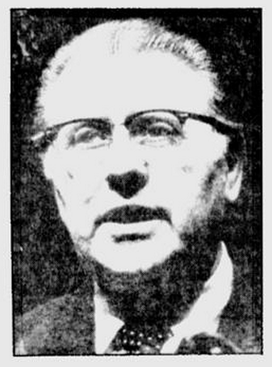
Elmer Stanley Knutson was a Canadian businessman, activist and fringe politician. Knutson was a strong supporter of creating an independent western Canada, in which the west would become sovereign from Canada's federal government. He has been credited with "whip[ping] Western alienation into a political movement."
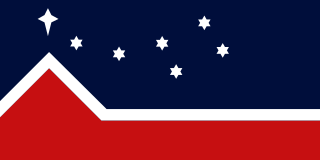
The Western Independence Party (WIP) was a Canadian political party that advocated the separation of Western Canada from Canada to form a new country from the provinces of British Columbia, Alberta, Saskatchewan and Manitoba, and the Yukon and Northwest Territories.
The Manitoba Social Credit Party was a political party in the Canadian province of Manitoba. In its early years, it espoused the monetary reform theories of social credit.
Dennis Heeney was a Manitoba politician. In the provincial elections of 1986 and 1988, he was the leader of the province's Confederation of Regions Party, a group that opposed the extension of French-language rights and sought greater autonomy for western Canada.

The 1986 Manitoba general election was held on March 18, 1986 to elect Members of the Legislative Assembly of the Province of Manitoba, Canada. It was won by the New Democratic Party, which took 30 seats out of 57. The Progressive Conservative Party won 26 seats and formed the official opposition. The Manitoba Liberal Party, which had not been represented in the previous legislature, won one seat.
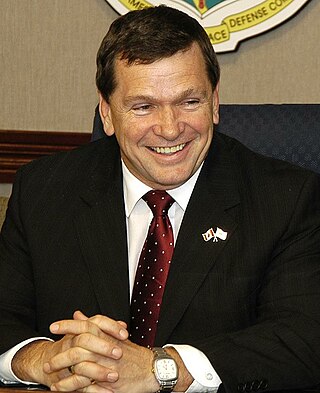
The 1991 New Brunswick general election was held on September 23, 1991, to elect 58 members to the 52nd New Brunswick Legislative Assembly, the governing house of the province of New Brunswick, Canada.
James Erwin Downey is a politician in Manitoba, Canada. He was a member of the Legislative Assembly of Manitoba from 1977 to 1999, and served as a cabinet minister in the Progressive Conservative governments of Sterling Lyon and Gary Filmon.
This is a seat by seat list of candidates in the 2004 Canadian election.
Stephen Juba, was a Canadian politician. He was a member of the Legislative Assembly of Manitoba from 1953 to 1959, and served as the 37th Mayor of Winnipeg from 1957 to 1977. He was the first Ukrainian Canadian to hold high political office in the city.

The Western Block Party (WBP) was a federal political party in Canada, founded in 2005 by Doug Christie. The party was registered on December 29, 2005, and deregistered on January 31, 2014.
Arch C. Pafford is a Canadian former politician in New Brunswick.
The New Brunswick Confederation of Regions Party was a political party in the Province of New Brunswick, Canada. It was the only branch of the Confederation of Regions Party of Canada to win any seats. It held official status in the Legislative Assembly between 1991 and 1995, before losing all its seats in the following election.